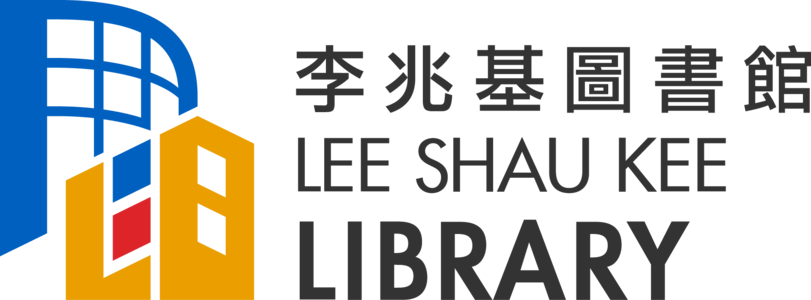SC1 – Making One’s Work Openly Accessible
The question lists 5 types of research output. More researchers put their articles (published or pre-prints) online for access; fewer archive other scholarly output for open access.

SC2 – Where to Post Output for Open Access
Among those posting their papers online, HKUST IR is one of their platforms, comparable with Open Access disciplinary repository in popularity.
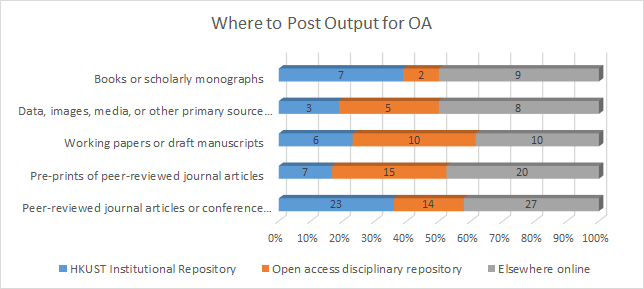
SC3 – Perceived Usefulness of SC Services
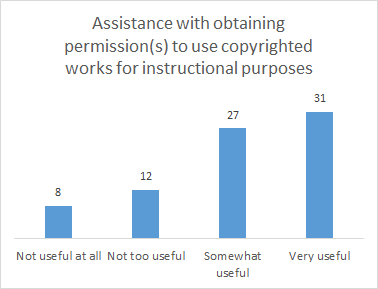

The question lists 9 potential services; the respondents rated how useful each of them is perceived to be. The listed services are:
- Assistance with obtaining permission(s) to use copyrighted works for instructional purposes
- Assistance with depositing your scholarly research in the HKUST Institutional Repository or an open access disciplinary repository (such as PubMed, SSRN, etc.)
- Advice about intellectual property or author’s rights issues (such as retaining copyrights for your publications or fair use of copyrighted works)
- Identifying publishers that are willing to comply with open access policies mandated by your institution and/or funding source (such as research funded by the RGC, CAS, Croucher, etc.)
- Advice about open access publishing options tailored for your department or field
- Online guides or tutorials about copyright or intellectual property issues
- Data management, preservation, or storage planning
- Consultation on or review of author agreement terms
- Workshops or seminars on copyright or intellectual property issues tailored for your department or field
Overall, the most welcomed service is Assistance with obtaining permission(s) to use copyrighted works for instructional purposes. Many respondents also rated Assistance with depositing your scholarly research in the HKUST Institutional Repository or an open access disciplinary repository as useful.
SC4 – Experience with Negotiating Author’s Rights with Publisher
Only 5% of the respondents have ever negotiated with publisher regarding copyright terms.
SC5 – Point of View about Negotiating Author’s Rights
Among those who have never negotiated copyright terms with publishers, about 1/4 did not do so due to lack of knowledge on copyright terms, while another 1/4 attribute that to not knowing such options.
| I do not have the sufficient knowledge or expertise about copyright terms to negotiate with publishers | 25% |
| I was not aware about the option to negotiate with publishers over copyright terms | 24% |
| To contribute to the scholarly literature in my field or subdiscipline, I have to agree to publishers’ copyright terms in order to publish my work in specific journals or by specific presses | 19% |
| I do not care about negotiating copyright terms for my author agreement(s) | 14% |
| For tenure, merit, or other promotion decisions, I have to agree to publishers’ copyright terms in order to publish my work in specific journals or by specific presses | 10% |
| Negotiating with publishers would not be worth it | 7% |
| Other (please explain): | 1% |
| Total | 100% |
SC6 – Assistance with Negotiating Author Rights
For the few respondents who negotiated terms with publishers, most of them got assistance from the publishers.
SC7 – Understanding of Institution’s Open Access Stance
When it comes to understanding of the institution’s policy or stance on publishing journal articles via a freely available repository, 38% of the respondents chose Do not understand at all.
SC8 – View on Open Access Mandate
Given different types of research output, the respondents rated their support on a mandate to make them openly accessible, using a scale of 6 (Highly support) to 1 (Highly oppose). There is a stronger support to making journal and conference papers publicly accessible.
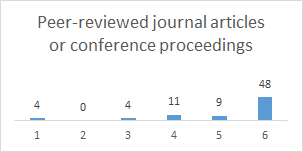

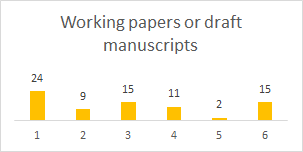
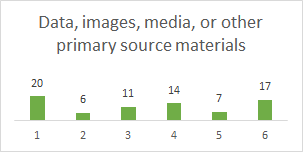
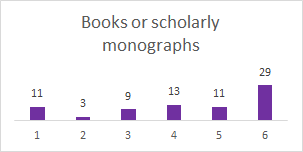
SC9 – Receipt of Research Grants
81% of the respondents are receiving or have received research grants
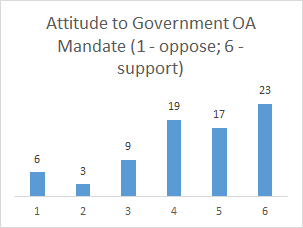
SC10 – View on Government Open Access Mandate
Most respondents support government policies mandating open access of research output.
Go Back to page Toplast modified 21 June 2018

